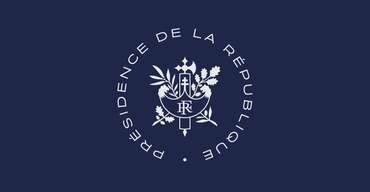On 9 June, the Heads of State and Government and high representatives of Croatia, Cyprus, Greece, Italy, Libya, Malta, Morocco, Portugal, Tunisia and the EU on the invitation of the President of the French Republic, gathered at the summit “For a More Connected Mediterranean”, on the sidelines of the third United Nations Ocean Conference.
The meeting also brought together representatives of international organisations, development banks and large companies.
In view of common challenges in the Mediterranean, the Heads of State and Government decided to strengthen their cooperation and work towards shared and sustainable prosperity through a greater maritime, land and digital connectivity between Europe, the Mediterranean and the Gulf.
The Mediterranean Sea accounts for 25% of global maritime traffic and is at the heart of commercial, energy and digital exchanges. In this intense traffic area, States have raised the level of protection of the sea through regulation of transport in the Gulf of Lion a well as the creation of a low-sulphur emission zone, known as SECA zone, which encompasses the entire Mediterranean Sea. The latter was established on 1 May 2025 following the approval of the International Maritime Organisation.
The European Commission recalled that, as part of the Global Gateway strategy in the Middle East and North Africa, the European Union’s support reached €5.9 billion, which is expected to mobilise up to €27.2 billion in private and public investments. Commissioner Šuica also presented the objectives of the upcoming New Pact for the Mediterranean, which aims to strengthen partnerships between the European Union and the countries in the Mediterranean region, based on mutual interests.
Extensive bilateral and regional partnerships were announced for the development of new land and sea connections, the decarbonisation of ports and the deployment of new submarine cables. The participants discussed common objectives to ensure:
1) Decarbonisation of the maritime sector and major Mediterranean ports.
As part of a joint statement, the Mediterranean ports of Algesiras, Beirut and Marseille, announced the creation of a working group contributing to the reduction of shipping’s greenhouse gas emissions by providing ships with onshore power connections in ports while developing infrastructure for supply of alternative fuels and fostering rail or river onward transport towards the hinterland, as well as studying opportunities for new green corridors in the Mediterranean. All Mediterranean ports will be welcome to join the coalition before the COP24 of the Barcelona Convention (Cairo, December 2025). Croatia also announced the launch of its new Rijeka Gateway, green and fully automated, within the port of Rijeka, the most important Croatian port situated on three EU corridors.
2) Strengthening of maritime and land routes for transport of goods and green energy.
France and the European Commission, within the framework of the Global Gateway strategy and the New Pact for the Mediterranean, reiterated their support for the implementation of the India Middle East Europe Corridor (IMEC), including the mobilisation of Global Gateway funding to launch feasibilitystudies for this corridor. France reiterated its support for Egypt’s accession to IMEC, which aims to strengthen connectivity between East and West.
On 30 May 2025, France organised the first IMEC Sherpa meeting since the signature of the Memorandum of Understanding in September 2023. During this meeting, the participants reaffirmed their strong support for the project, as well as the need to consolidate IMEC's governance while mobilising companies in the strategic sectors concerned. This same group has been invited by the European Commission to meet again, on the sidelines of the Global Gateway Forum to be held in Brussels on 9 and 10 October.
On energy connectivity between Europe and the Gulf, ACWA Power reaffirmed its commitment to convene a private-sector working group alongside leading European energy companies (including partners from France, Germany, Italy and Greece) to explore and develop joint projects in green hydrogen, renewable energy exports and related infrastructure, such as electrical interconnections. This collaborative framework will pave the way for clearer energy flows and the necessary investments under the IMEC corridor.
The Commission also stated the importance of advancing clean energy connectivity with North Africa, notably through the emerging T-MED Initiative, which supports renewable energy investment and infrastructure development across the Mediterranean.
In the Eastern Mediterranean, Greece and Cyprus recalled the implementation of large renewable energy interconnection projects, such as the “GREGY” project, a 950-kilometre submarine cable with a capacity of 3 GW which aims to interconnect Egypt and Greece, or the “Great Sea Interconnector” (GSI), bridging Europe and Middle East with clean energy.
3) Increased digital connections between the Mediterranean and the Gulf.
The participants presented EU’s flagship “Medusa/GEANT” Submarine Cable System initiative, which will not only link the two shores of the Mediterranean, but also Southern Mediterranean countries among themselves, by manufacturing and deploying a submarine cable system based on the most recent technological advancements in fibre optics communications, fully based on European leading-edge technology. It will also contribute addressing the digital divide with partner countries. The network is led by the company AFR-IX telecom, with the support of the Orange Group and the European Union, while Alcatel Submarine Networks (ASN) and Elettra Tlc are responsible for its deployment.
Other major initiatives are already currently contributing to the digital influence of the region, such as the Aqaba Digital Hub, which was inaugurated in 2023 and is one of the largest technological centres in the Near East.
Latest news
See all articles and topics-
17 April 2025 Meeting with Steve Witkoff, Special Envoy of President Trump, and Marco Rubio, U.S. Secretary of State.

-
5 May 2025 Launch of "Choose Europe for Science" at the Sorbonne.

-
7 May 2025 Meeting with Ahmed Al-Charaa, Interim President of the Syrian Transitional Authorities.

-
7 May 2025 A Franco-German “reset” for Europe.

